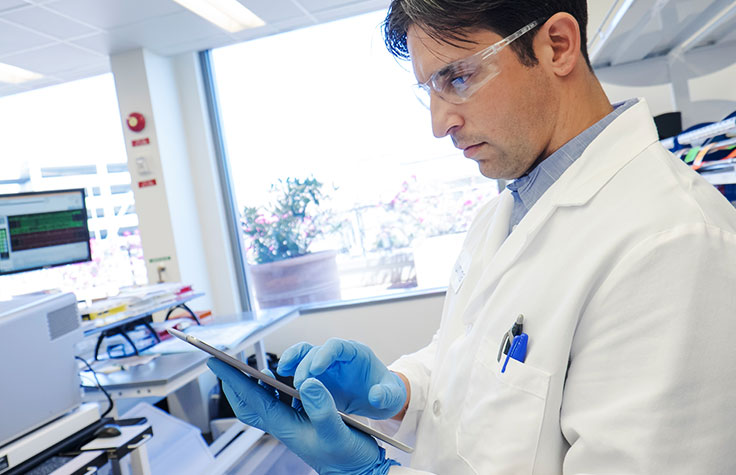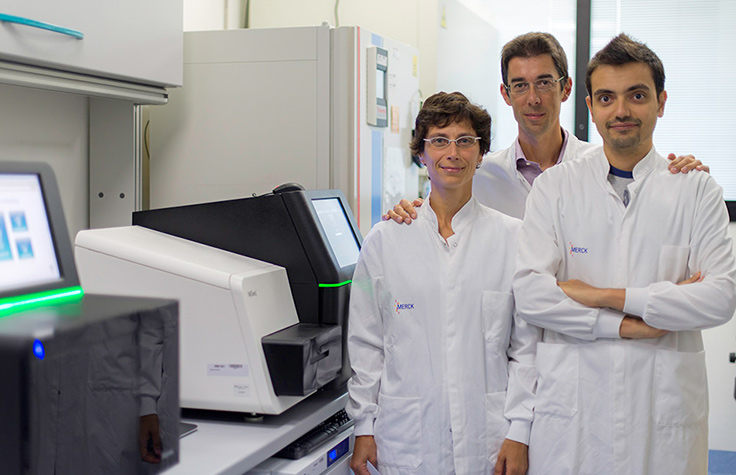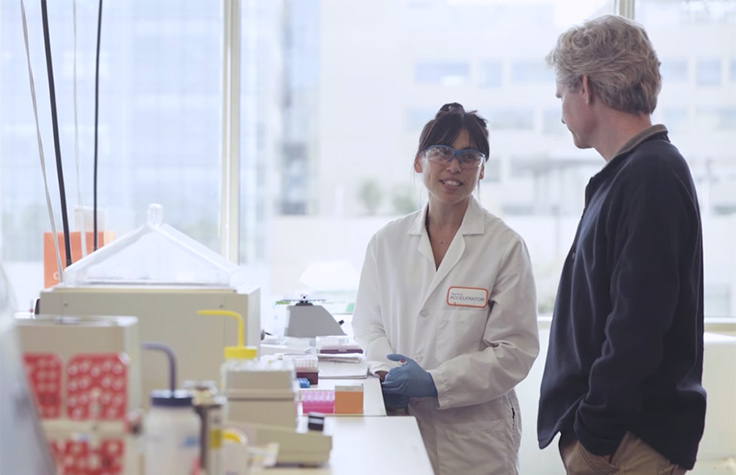Genomics in Drug Discovery & Development
Transforming Drug Development with Genomics
Next-generation sequencing (NGS) and other genomic analysis technologies can help pharmaceutical and biotech researchers better understand the genetic variants associated with various diseases. These insights can accelerate drug discovery efforts and support the development of targeted therapeutics and multi-analyte tumor analysis. NGS also opens the door for discovery of novel methods to monitor cancer treatment and recurrence.
lllumina brings innovation to drug discovery and development by offering comprehensive genomic solutions working in collaboration with leading pharmaceutical providers.
Companion Diagnostics Development
As targeted therapies make their way through pharmaceutical pipelines, the need for detailed biomarker information and companion diagnostics is increasing.
NGS in Drug Discovery & Development
NGS can help pharmaceutical researchers and drug developers explore genomic variation. This can inform drug target discovery, validation, and clinical development.
Pharmacogenomics
Understand how variations in the human genome affect our response to medications. Pharmacogenomics (PGx) research can ultimately help maximize the benefits of treatment plans while reducing health care costs.
Learn More About PGx
Value of a Panomics-Based Drug Discovery Approach
A groundbreaking international clinical study has succeeded in integrating imaging, multiomic technologies, and data analysis into a powerful drug discovery engine. The Global Genomics Group (G3) has demonstrated the value of its novel approach, with the introduction of a new diagnostic and several drug candidates in development with pharmaceutical partners.
Read Article
Drug Discovery through Gene Regulation
Pharmaceutical and biotech scientists leading targeted drug discovery efforts have traditionally focused on inhibiting or modulating the function of abnormal proteins. But diseases could also potentially be treated in the future by controlling gene expression. In this podcast episode, Dr. Eric R. Olson of Syros Pharmaceuticals explains how epigenomics is enabling a paradigm shift in drug discovery.
Listen to the PodcastLearn More About Epigenetics

Interested in receiving newsletters, case studies, and information on genomics in drug development? Enter your email address.
Featured Resources

NGS Used for Biological QC in BioPharma Production
Read how Merck Serono uses NGS for cell line stability testing and biosafety monitoring.

Polygenic Risk Scores
Polygenic risk scores represent the total number of genetic variants that an individual has to assess their heritable risk of developing a particular disease.

Complex Disease Genomics
Complex diseases are caused by a combination of genetic and environmental factors. Luckily, genomics technologies are helping accelerate research, and, hopefully one day, the diagnosis, treatment, and prevention of these diseases.

RNA-Seq for Drug Response Biomarker Discovery and Profiling
Access resources to explore NGS-based biomarker discovery and profiling.

Scaling NGS to Deliver Discoveries
Regeneron discusses their latest work and overall mission to explore new variations in genomes that can help explain disease.

Conducting Innovative Experiments with NGS
Chan Zuckerberg Biohub discuss their mission to conduct innovative experiments and new kinds of collaborations in genomics.